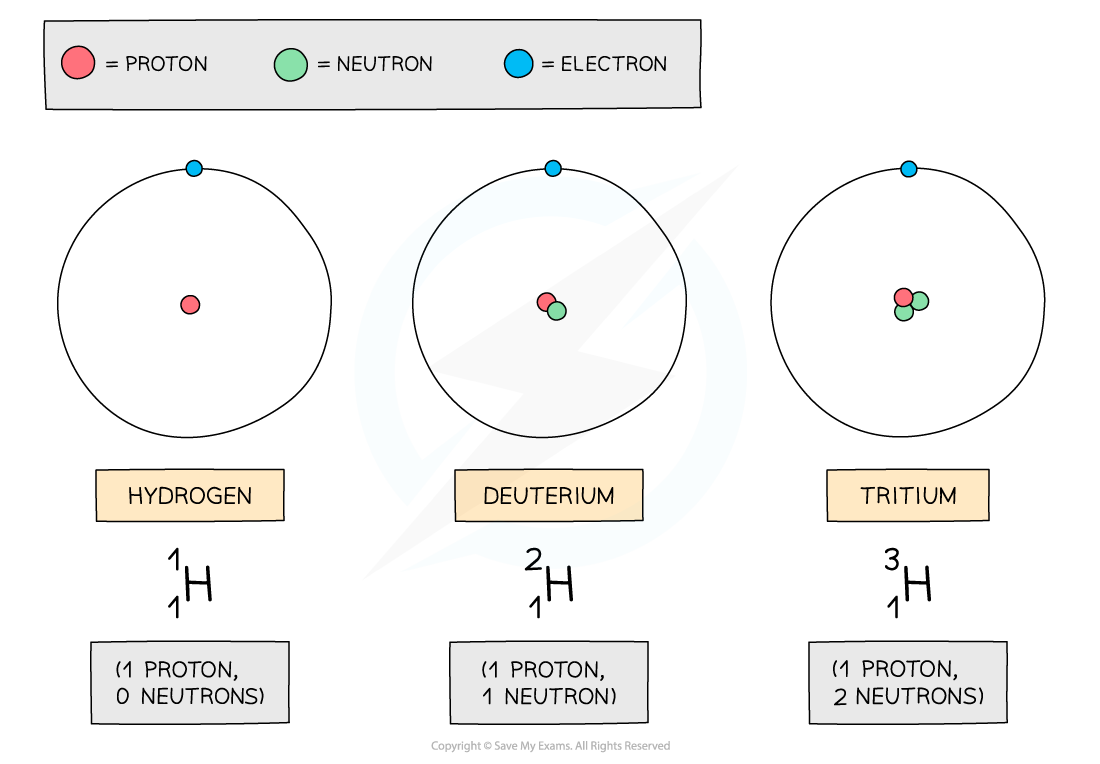Isotopes (Edexcel GCSE Physics): Revision Note
Exam code: 1PH0
Did this video help you?
Isotopes
Although the number of protons in a particular element is always the same, the number of neutrons can be different
Isotopes are atoms of the same element that have an equal number of protons but a different number of neutrons
In the diagram below are three isotopes of Hydrogen:

Hydrogen has three isotopes, each with a different number of neutrons
Isotopes occur naturally, but some are more rare than others
For example, about 2 in every 10,000 Hydrogen atoms is Deuterium
Tritium is even more rare (about 1 in every billion billion hydrogen atoms)
Differences Between Isotopes
The number of neutrons in an atom does not affect the chemical properties of an atom, such as its charge, but only its mass
This is because neutrons have no charge but do have mass
The charge of the nucleus of a particular element is always the same
In the periodic table, the mass number of Chlorine is often given as 35.5

This section of a periodic table shows Chlorine as having a mass number of 35.5, but other elements have an integer mass number
The mass number of chlorine is given as 35.5 because it has 2 isotopes, one with a mass number of 35 and the other with a mass number of 37
Chlorine-35 is about three times more abundant than chlorine-37, so the given mass number of chlorine is closer to 35 than 37
The number of electrons and protons in different isotopes remains the same
Some isotopes are unstable as they have an imbalance of protons and neutrons
Worked Example
One of the rows in the table shows a pair of nuclei that are isotopes of one another.

Which row is correct?
Answer: B
Step 1: Properties of isotopes
Isotopes are nuclei with the same number of protons but different number of neutrons
The nucleon number is the sum of the protons and neutron
Therefore, an isotope has a different nucleon number too
Step 2: Calculate protons in the first nucleus
Nucleon number: 37
Neutrons: 20
Protons = 37 − 20 = 17
Step 3: Calculate protons in the second nucleus
Nucleon number: 35
Neutrons: 18
Protons = 35 − 18 = 17
Step 4: Conclusion
Therefore, they have the same number of protons but different numbers of neutrons and are isotopes of each other
The correct answer is therefore option B

Unlock more, it's free!
Did this page help you?